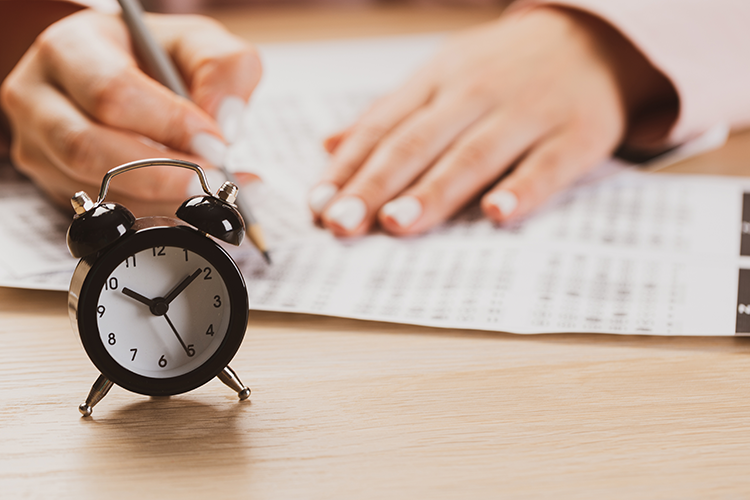Bar applicant denied damages for test mishaps and proctor distractions

Three software crashes and annoying habits of proctors didn’t entitle a law grad taking the bar exam to damages for reduced accommodations, the Delaware Supreme Court has ruled. Image from Shutterstock.
Three software crashes and annoying habits of proctors didn’t entitle a law grad taking the bar exam to damages for reduced accommodations, the Delaware Supreme Court has ruled.
In a Nov. 9 opinion, the state supreme court rejected arguments by Marla Matrice Murphy, who took the Delaware bar exam in July 2021 and failed.
The Legal Profession Blog noted the decision.
After Murphy requested accommodations, she was told that she would be given twice the time to take the exam, a private room in which to take it, and scratch paper during the exam. She never received the scratch paper. And she contended that software failures deprived her of the double time that she was supposed to have, and the proctors’ distractions deprived her of the private-room accommodation.
Murphy said she was distracted by the first proctor’s ringing phone and the clicking sounds that could be heard when he typed on a laptop keyboard. The second proctor had several coughing fits, which the proctor attributed to allergies, rather than COVID-19. The second proctor also moved around the room during one of the exam days and texted on her phone, albeit with the sound turned off.
Murphy also experienced three software crashes, eating up about 15 minutes of her exam time, causing stress and requiring her to recreate lost work on one of her essays.
Because of the exam crashes that experienced by Murphy and others, the Delaware Board of Bar Examiners adjusted scores on essays affected by the crashes.
A panel of the Delaware Board of Bar Examiners determined that Murphy was denied only one of her requested accommodations: the scratch paper. The remedy, the panel determined, was to take the bar exam again, with accommodations but without the application fee.
The Delaware Supreme Court affirmed, holding that the panel’s finding was supported by substantial evidence, and its legal determinations were free from error.
In affirming, the Delaware Supreme Court agreed that the hearing panel had no authority to award damages, and there was no showing of deliberate indifference.
“Even if the panel had the authority to award damages, Murphy is not entitled to them,” the Delaware Supreme Court said.
“Because Murphy’s damages argument rests on this court holding that she was deprived of all the accommodations for which she appeals, and we have concluded otherwise, … we affirm on the basis that she was not subjected to ‘deliberate indifference’ by the board.”
It was the second time that the case was before the Delaware Supreme Court. The first time, the state supreme court ruled that Murphy could not be admitted to practice without taking the bar exam.
A lawyer for Murphy, Christopher Isaac of Offit Kurman, declined the ABA Journal’s request for comment.
Write a letter to the editor, share a story tip or update, or report an error.



